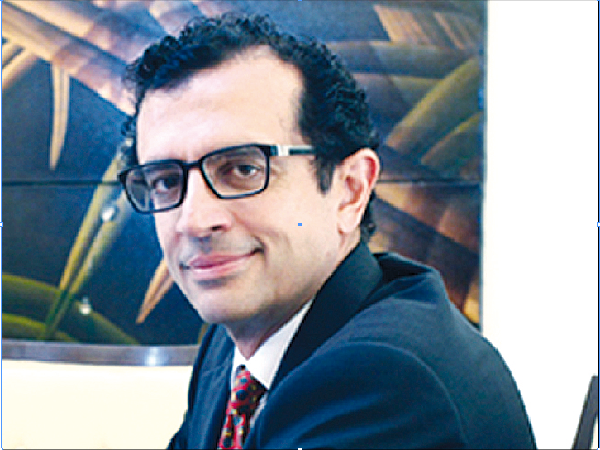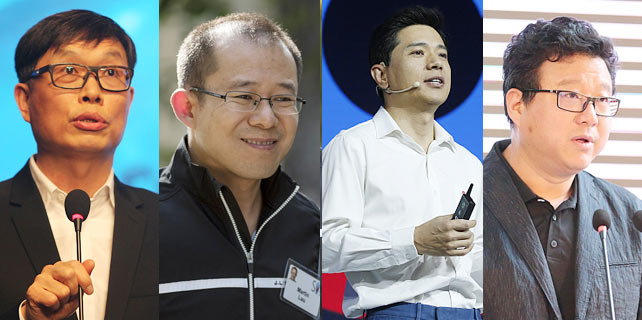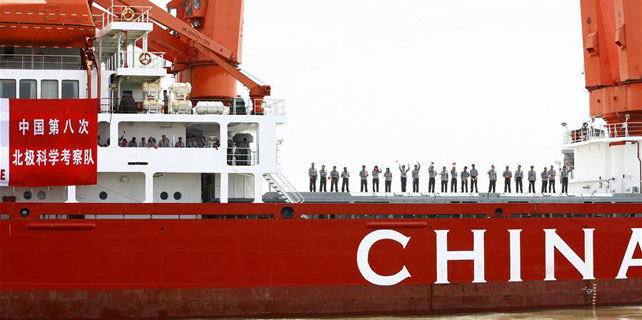The philanthropic benefits from impact investment

Vikram Gandhi debunks the myth that financial returns must be sacrificed when investing in social causes.
A savvy deal-maker whose investment banking experience stretches over two decades, Gandhi said social ventures need not just be charity.
Gandhi said social investments can assure returns that not only match market rates but also have an impact on the underserved — what he calls "impact investing". This is a particularly important message in India, where social investing is yet to take off in a significant way.
"In India the underserved, or those at the bottom of the pyramid, is a huge market," he said.
"I believe that if one can apply business principles in a product or service (for the underserved) and can provide it at a price point that makes sense to that customer base, and at a cost structure where one is profitable, it becomes a much more sustainable and scalable model."
Gandhi's definition of impact investing is the creation of a business that offers products and services for a community at a profit, and which can be reinvested for growth and scalability that also helps to serve others.
As proof, Gandhi cites his venture: Asha Impact, which invests in and provides support to scalable social enterprises.
Gandhi founded Asha Impact, in which he and Pramod Bhasin — who set up Genpact, a pioneer in business process outsourcing — are the primary investors. Together they have invested "tens of millions" of their personal wealth "under the Asha Impact umbrella" in ventures that combine both commercial returns and social impact.
"Typically Asha invests between $1-3 million in early-stage companies, which includes potential follow-on investments," Gandhi said. One of its most successful investments was low-income housing, where Asha Impact invested in a company that builds houses and sells at a reasonable profit.
"We cannot disclose investments in individual companies due to confidentiality reasons but the housing company is in its early stages of development and growth," Gandhi said, adding that the profits are being plowed back into other housing projects.
"So this is a good example that a for-profit model can work alongside philanthropic activities, and it does not have to be an 'either-or' pursuit. The fact that an investor can make money by producing a product or service for a community which is otherwise underserved is a win-win situation for everybody."
Gandhi started "serving the community" while still at school.
"The school I went to encouraged community service, but my tryst with philanthropy started with visits to a nonprofit social service organization called Asha Daan, started by Mother Teresa, where I would go every week to teach English to poor students," he said.
However, his first significant involvement in serving a large community was in setting up AIESEC's India chapter. AIESEC, founded in 1948, is a global nonprofit organization that enables young people to work in different countries.
Gandhi was selected to head the organization in India while he was still in college. Soon, he was elected to head AIESEC's global operations. He moved to its headquarters in Brussels, Belgium, for a year.
Before long, other opportunities emerged. While working for AIESEC in Mumbai, Gandhi caught the attention of Ratan Tata, the head of Indian conglomerate Tata Group.
"I worked closely with Mr Tata for about two years, on various projects including some for the Tata Trusts — the charitable arm of the Tata Group," he said.
The AIESEC experience also kindled a desire to acquire an overseas qualification, though Gandhi already had business degrees from Indian institutions. He was accepted by Harvard Business School's MBA program.
But this "expensive degree" also meant putting his philanthropic plans on hold for a while, and opting instead for a more lucrative career.
He ended up working for Morgan Stanley and later Credit Suisse. But "while I was pursuing a career in high finance and high-end consultancy, I never really stepped away from developmental activities", he said.
During his stint as an investment banker and a consultant, Gandhi managed some philanthropic initiatives at Morgan Stanley. He also dabbled in microfinance by joining the board of Grameen Foundation — the global nonprofit organization founded by Muhammad Yunus, the Bangladeshi Nobel laureate.
However, Gandhi yearned to return home. "Being an Indian at heart, I always wanted to come back to India after living in the US for a few years. Yet, family commitments and the children's education made it tough."
But 23 years later, having achieved career goals, financial security, and with his children's education completed, Gandhi returned to his roots.
From a structural standpoint, life has three phases, he said. "The first is education, to prepare for the world. Building a career and family and financial security comes next, which I did for the next 25 years till I was 50. But then, having achieved those goals, I decided it was time for the next stage — that is, to return and build a legacy."
According to Gandhi, impact investing is a continuum. On one hand there is philanthropy, where one writes a check and does not expect to get the capital back. Then, there is the other extreme, where one invests purely for return.
There is a spectrum in the middle, and impact investing covers that too.
Gandhi operates in that middle spectrum. He explained that Asha Impact is a virtual platform that functions like a private equity or venture capital firm, but sourcing transactions that have a targeted social impact.
His focus has extended overseas as well. A few years back he founded the Harvard South Asian Initiative, which brings together different colleges under Harvard University's umbrella to solve problems in the South Asia region.
And now Gandhi is eyeing China, where impact investing is still in its infancy and he sees huge potential.
"Our plan is to create more awareness of the benefits of impact investing through our network in Hong Kong and Shanghai," he said. "As increasing levels of private wealth are being created, this is an opportune time for Chinese 'family offices' to participate and become more active in this area."
For Gandhi, commitment to the community is much more than a philanthropic wish. He considers it a moral responsibility.
Born into a family that was comfortably off, he recognizes he enjoyed access to opportunities denied to the 400 million Indians living below the poverty line.
















